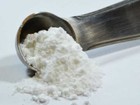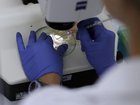Shanghai has shut a factory of U.S. food provider OSI Group for selling out-of-date meat to restaurant giants including McDonald's and KFC, authorities said Monday in China's latest food safety scandal.
Shanghai television, which reported the original allegations, said that workers at the OSI China plant mixed expired meat with the fresh product and deliberately misled quality inspectors from McDonald's.
 Full Story
Full Story
The rate of HIV diagnoses in the United States has dropped more than 30 percent over the past decade, but is on the rise among certain gay men, researchers said Saturday.
Men who have sex with men and who are aged between 13 and 24 saw the biggest rise -- a 132.5 percent increase in the rate of HIV diagnoses -- said the report in the Journal of the American Medical Association.
 Full Story
Full Story
Scientists on Saturday vowed to press ahead with their quest for a cure for AIDS, despite losing a veteran colleague and suffering a setback in research.
 Full Story
Full Story
Health authorities Friday reported nearly 200 confirmed cases of the chikungunya virus in Puerto Rico and the first two cases of the mosquito-borne disease in Florida.
Puerto Rico's Health Department, in its weekly report, said that, as of June 25, laboratories had confirmed the virus in 182 people and that infections were suspected in 503 more.
 Full Story
Full Story
The number of obese and overweight children in the world could balloon from 44 million in 2012 to 75 million in 2025, the World Health Organisation (WHO) warned on Friday.
 Full Story
Full Story
U.S. regulators on Friday warned against ingesting pure powdered caffeine, which is being sold in bulk over the Internet and is known to have killed at least one teenager.
"These products are essentially 100 percent caffeine. A single teaspoon of pure caffeine is roughly equivalent to the amount in 25 cups of coffee," the Food and Drug Administration said.
 Full Story
Full Story
A human egg used to produce stem cells but unable to develop into a viable embryo can potentially be patented, a key EU legal chief said Thursday.
In an opinion of huge interest for biotechnology companies investing in stem-cell research, Advocate General Pedro Cruz Villalon said such eggs did not meet the definition of what constituted a human embryo.
 Full Story
Full Story
Federal authorities on Thursday charged FedEx with assisting illegal pharmacies by knowingly delivering painkillers and dangerous drugs to customers without prescriptions.
The indictment filed in federal court in San Francisco alleges that FedEx Corp. conspired with two related online pharmacies for 10 years ending in 2010.
 Full Story
Full Story
HIV-positive people in the world's rich countries now live nearly as long as those who don't carry the AIDS-causing virus, as drugs have cut the overall death rate in half, researchers said Friday.
Anti-retroviral treatment (ART) has cut the death rate from about 18 per 1,000 people between 1999 and 2001 to nine per 1,000 per year in 2009-2011, according to data from 200 clinics in Europe, the United States and Australia.
 Full Story
Full Story
Exoskeletons helping the paralyzed to walk, tiny maggot-inspired devices gnawing at brain tumors, machines working tirelessly as hospital helpers: in many respects, the future of medicine is already here.
Experts say that, at the experimental level, human skills are already being enhanced or replaced by robots and other hi-tech substitutes -- and these may become commonplace just a few years from now.
 Full Story
Full Story



